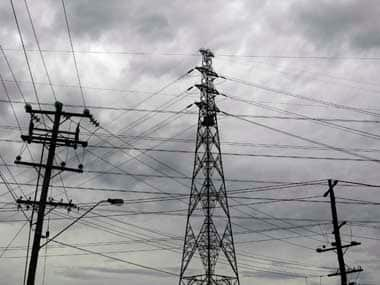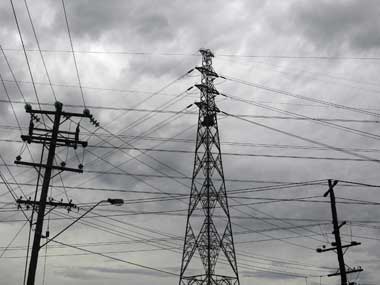I live in Hyderabad. I do not get power for three hours in a day. My friend lives in Anantapur town. He goes without power for six hours daily. His relative who lives in a village nearby sees the bulb glow only at 6 pm everyday. That is because no village in Andhra Pradesh is supplied power between 6 am and 6 pm. This according to Payyalu Keshav of the Telugu Desam is a clear violation of human rights and goes against the Constitution that says all citizens will be treated equally. The senior TDP legislator has therefore approached the State Human Rights Commission (SHRC) arguing it is curtailing the right to work and livelihood of people living in the small towns and villages. “A domestic consumer in Anantapur pays the same electricity tariff as a domestic consumer in Hyderabad. So why should the former suffer more hours without power when compared to the person in the state capital. Isn’t this a violation of his human rights?” he argues.[caption id=“attachment_652191” align=“alignleft” width=“380”] Who should get the power? Reuters[/caption] Keshav has a point. With many weavers in small towns and villages having shifted to powerlooms, all of them are silent through the day. At sunset, when power is restored, there is a scramble for operating all appliances at all homes, causing low voltage and frequent tripping of power. “Citizens of Hyderabad are allowed to operate their air conditioners for 21 hours in a day while people elsewhere cannot even operate a fan, let alone work. Power cuts ought to be uniform throughout the state,” says Keshav. The SHRC has admitted the petition, summoning the energy department officials on 20 March. But one can only be skeptical over whether the petition will go far. While on the face of it, Keshav’s argument does sound convincing, the fact remains that his angst is more about discrimination and not exactly human rights. To call it a violation of human rights may be deemed a far-fetched argument. Civil liberties activist L Ravichander argues that if discrimination on the basis of where one lives is the point, then every villager in the country can complain about how the roads in his patch are not as good as those in Lutyens’ Delhi. Which means while the system may empathise with the concerns raised in the petition, it wouldn’t do much about it because ‘discrimination’ between a metro, a town and a village—or call it the difference between ‘India’ and ‘Bharat’—is the way the establishment functions. Environmentalists like former energy secretary to the government of India, EAS Sarma asks what about the human rights violations of those whose lands are forcibly taken away or their environment polluted for the purpose of setting up power plants. The reference is to agitations like at Sompeta in Srikakulam district of Andhra Pradesh, where three villagers were killed in police firing in 2010 when they protested against the setting up of a power plant that would destroy its wetlands and flora and fauna. A non-socialist argument in Hyderabad’s favour is that it brings in more revenue to the state exchequer and therefore has a right to demand comparatively better services than fellow citizens living in other parts of Andhra Pradesh. The summer has just about begun in the south of the country and citizens are already getting hot under the collar. With a huge shortfall of power coupled with a political commitment to provide seven hours of free power supply to the rabi crop, the energy department is struggling to keep Andhra Pradesh glowing. ‘Being Human’ is the last thought on its mind as it goes about its business of keeping the state in the dark.
Who should get the power? Reuters[/caption] Keshav has a point. With many weavers in small towns and villages having shifted to powerlooms, all of them are silent through the day. At sunset, when power is restored, there is a scramble for operating all appliances at all homes, causing low voltage and frequent tripping of power. “Citizens of Hyderabad are allowed to operate their air conditioners for 21 hours in a day while people elsewhere cannot even operate a fan, let alone work. Power cuts ought to be uniform throughout the state,” says Keshav. The SHRC has admitted the petition, summoning the energy department officials on 20 March. But one can only be skeptical over whether the petition will go far. While on the face of it, Keshav’s argument does sound convincing, the fact remains that his angst is more about discrimination and not exactly human rights. To call it a violation of human rights may be deemed a far-fetched argument. Civil liberties activist L Ravichander argues that if discrimination on the basis of where one lives is the point, then every villager in the country can complain about how the roads in his patch are not as good as those in Lutyens’ Delhi. Which means while the system may empathise with the concerns raised in the petition, it wouldn’t do much about it because ‘discrimination’ between a metro, a town and a village—or call it the difference between ‘India’ and ‘Bharat’—is the way the establishment functions. Environmentalists like former energy secretary to the government of India, EAS Sarma asks what about the human rights violations of those whose lands are forcibly taken away or their environment polluted for the purpose of setting up power plants. The reference is to agitations like at Sompeta in Srikakulam district of Andhra Pradesh, where three villagers were killed in police firing in 2010 when they protested against the setting up of a power plant that would destroy its wetlands and flora and fauna. A non-socialist argument in Hyderabad’s favour is that it brings in more revenue to the state exchequer and therefore has a right to demand comparatively better services than fellow citizens living in other parts of Andhra Pradesh. The summer has just about begun in the south of the country and citizens are already getting hot under the collar. With a huge shortfall of power coupled with a political commitment to provide seven hours of free power supply to the rabi crop, the energy department is struggling to keep Andhra Pradesh glowing. ‘Being Human’ is the last thought on its mind as it goes about its business of keeping the state in the dark.
Bad power supply: Discrimination or human rights violation
Sudhir
• March 7, 2013, 18:17:24 IST
Payyalu Keshav’s petition challenging inequality in electricity supply to urban and rural areas despite similar tariffs questions the formula of power distribution in the country.
Advertisement
)
End of Article